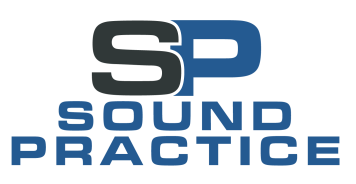Self-Management
Leadership Training in the U.S. Armed Forces with Dr. Neil Grunberg
November 1, 2023
The U.S. Armed Forces have been making efforts to properly care for soldiers and sailors since Jonathan Letterman became medical director of the Army of the Potomac in July of 1862. Battlefield care requires skills and procedures different from civilian care. In this episode of SoundPractice, Mike Sacopulos discusses with.... MORE
SoundPractice, hosted by the American Association for Physician Leadership®, delivers practical information and fresh perspectives for physician leaders and those running healthcare systems. Physician advocate Michael Sacopulos, JD (healthcare attorney, author, speaker) brings you the best thought leaders, crisp humor, and pithy tips to help your healthcare organization thrive.
Finance
Gretchen Morgenson and Role of Private Equity in Healthcare
October 18, 2023
Gretchen Morgenson is the senior financial reporter for the NBC News Investigative Unit. A former stockbroker, she won the Pulitzer Prize in 2002 for her “trenchant and incisive” reporting on Wall Street. Previously at The New York Times and The Wall Street Journal, she and coauthor Joshua Rosner have written.... MORE
Quality and Risk
Patient Education and Physician Leadership with John Whyte, Chief Medical Officer at WebMD
October 4, 2023
We all know a family member, friend, or a patient self-diagnosed with the help from search engines. Although some clinicians roll their eyes when patients arrive armed with information from online research, the Internet has opened the door to health education. And we know that more engaged, informed patients.... MORE
Professional Capabilities
The Path from Mathematics and STEM to Meta and AI Research with Dr. Kristin Lauter
September 20, 2023
Mike Sacopulos speaks with Kristin E. Lauter, PhD, about her chapter titled, “Trust, Access, and Visibility,” in the book, Lessons Learned: Stories from Women Leaders in STEM. Lauter is the director of Research Science, North American Labs for Meta AI Research. The New England Journal of Medicine recently published a series.... MORE
Self-Management
Mentorship, Women Physicians, and Leadership with Kathleen Neuzil, MD, MPH
September 6, 2023
Kathleen Neuzil, MD, MPH, is the Myron M. Levine MD, DTPH Professor in Vaccinology, professor of medicine and pediatrics, and is the director for the Center for Vaccine Development and Global Health at the University of Maryland School of Medicine. Mike Sacopulos speaks with Neuzil about her chapter in the book,.... MORE
Self-Management
Moral Injury in Healthcare with Wendy Dean, MD
August 23, 2023
Wendy Dean, MD, is a writer, speaker, podcast host, and the president and co-founder of The Moral Injury of Healthcare (fixmoralinjury.org), a nonprofit focused on alleviating distress in the workforce through training and consultation. She and her co-founder, Simon G. Talbot, MD, began the conversation about moral injury in healthcare.... MORE
Self-Management
Author Dr. Deborah Shlian on Lessons Learned: Stories from Women Physician Leaders
August 9, 2023
Describing her own path as a physician leader, Deborah M. Shlian, MD, MBA, also shares her book plan and the resulting project with 30+ contributors to the book published by the American Association for Physician Leadership, Lessons Learned: Stories from Women Physician Leaders. Fascinating stories from women in leadership roles.... MORE
Self-Management
Treatment-related Medical PTSD and “Difficult Patients” with Brenda Denzler
July 26, 2023
Brenda Denzler, PhD, is an author and editor. Her career as an editor and writer was cut short after her diagnosis with inflammatory breast cancer in 2009, at which time she was also diagnosed with treatment-related medical PTSD springing from medical encounters she had experienced at the age of five..... MORE
Self-Management
Reaching Organizational Goals for Relationships in Healthcare with Jennifer Sweeney
July 12, 2023
Healthcare can be tough on patients, clinicians, and administrators who work in the system. Clinicians are burning out at alarming rates; depression and suicide are on the rise. Patients often feel alone in a complex system, and administrators balance competing demands in what feels like a zero-sum game. Enter COVID. Our.... MORE
Self-Management
Beth Garner, MD, MPH, on Physician Leadership, Careers in Industry, and Advocacy for Women’s Health
June 28, 2023
Host Mike Sacopulos interviews Beth (Elizabeth) Garner, MD, MPH, who contributed her life and career story to the AAPL book, published in 2022, Lessons Learned: Stories from Women Physician Leaders. Garner is currently chief scientific officer of Ferring Pharmaceuticals, and president of the American Medical Women’s Association (AMWA)..... MORE
Self-Management
The End-of-Life-Care, MAID, and Physician Leadership
June 14, 2023
Physician autonomy, patient autonomy, state authority. When it comes to end-of-life issues, these spheres do not interact smoothly. Legal and medical ethical questions abound. Physicians wrestle with this important topic. This episode takes a deep dive into topics surrounding right-to-die with one of our nation’s leading medical ethicists. Ira Bedzow,.... MORE
Finance
Physician Employment and Trends in Compensation Models with Author Jeff Gorke
May 31, 2023
Jeffrey T. Gorke is the author of The Employed Physician: Your Essential Guide to the Business of Medicine. His experience ranges from Medicare administration to running both large and small, single-specialty, privately held medical group practices to medical society management on a national level. Gorke specializes in turning around.... MORE
